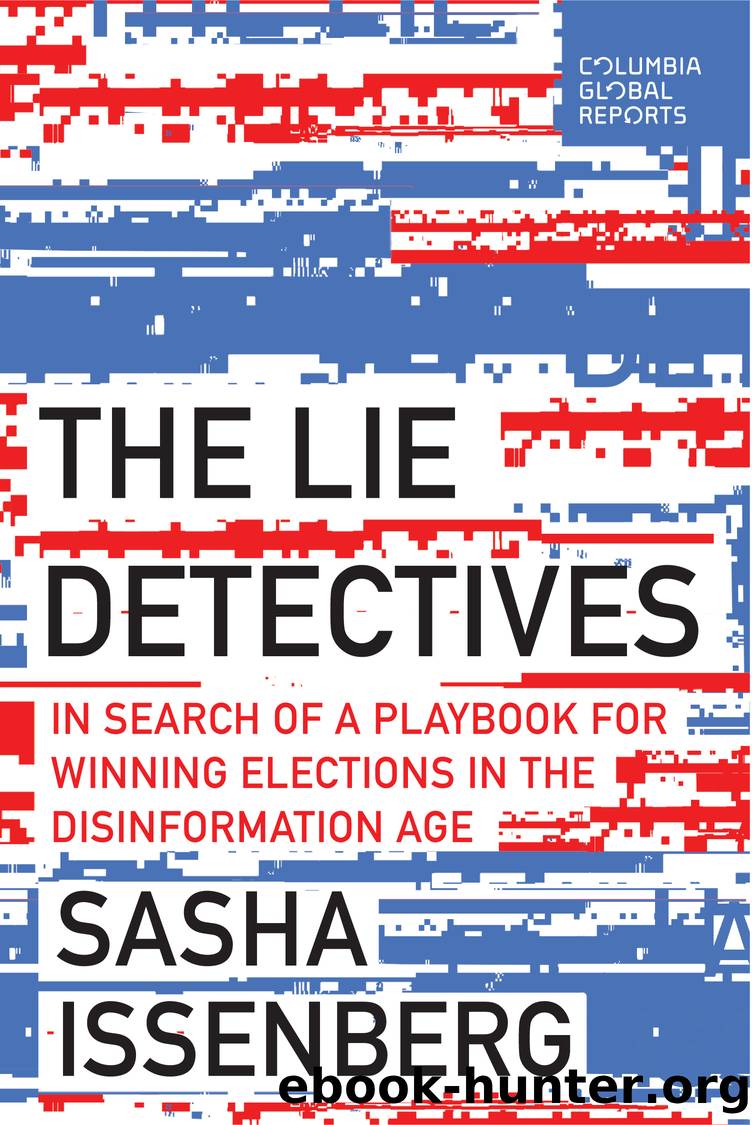The Lie Detectives by Sasha Issenberg

Author:Sasha Issenberg
Language: eng
Format: epub
Publisher: Columbia Global Reports
Lawyers, Gifs, and Money
When Brazilâs Superior Electoral Court opened a new headquarters in 2011, it represented the most significant new addition the countryâs planned capital had seen in years. The court is older than Brasilia itself, dating to the 1932 founding of Brazilâs system of âelectoral justiceâ at the same time it enacted womenâs suffrage, the secret ballot, and compulsory voting, which all took effect in the following yearâs election. âThe slave was freed in â88 and the people in â33,â Finance Minister Oswaldo Aranha told the newspaper O Globo at the time. âThese are the two biggest dates of our formation.â The authority responsible for administering elections itself moved between unmemorable structures across Rio de Janeiro and then Brasilia once it became the seat of power in 1960, another small federal bureaucracy whose work sustained the nation but rarely drew public attention.
That changed in 2000, when the court replaced paper ballots with electronic voting machines. The technology enfranchised Brazilians who previously lived too remotely to be served by traditional polling places, including in far-flung corners of the Amazon, where it was much easier to tote an individual computer rather than secure cloth sacks filled with paper. More voters saw their preferences recorded, too, as the number of ballots left blank or voided by inappropriate markings fell dramatically. At the same time Americans waited thirty-six days for their presidential election to be settled, a period filled with competing claims of fraud, Brazilians celebrated the bureaucrats who delivered conclusive results within hours. âOur election system has advanced with the passing years,â columnist Stephen Kanitz wrote in the newsweekly Veja. âTheirs is stuck in the past.â
Fifteen years after emerging from a military dictatorship, election administration had become a source of national pride for Brazilians who understood the ways it marked their resurgence into a modern liberal state. âI wish that democracy, so important to us, will continue to be stronger and stronger, taking care of the countryâs and Latin Americaâs problems,â said the architect Oscar Niemeyer, who was tapped to design a new headquarters for the court a half-century after first helping to map Brasilia.
Niemeyerâs building was completed in 2011 and now houses nearly a thousand employees who oversee every aspect of the vast nationâs electoral apparatus. (Niemeyer died a year after the opening.) But it was not until 2022 that the courtâs cultural status grew to fully occupy its monumental home, as a faceless custodian of election administration became an active protagonist in a vote the Council on Foreign Relations labeled âa test for democracy.â
Over the course of the election year, the Superior Electoral Court became the center of gravity in Brasilia. The presiding judge, Alexandre de Moraes, often showed up in news coverage as frequently as the two leading candidates for the presidency: right-wing incumbent Jair Bolsonaro, pursuing a second four-year term, and Luiz Inácio Lula da Silva, a former president seeking a return to office after spending a year and a half in prison. The courtâs Portuguese abbreviation, TSE, appeared in headlines as often as the candidatesâ names.
Download
This site does not store any files on its server. We only index and link to content provided by other sites. Please contact the content providers to delete copyright contents if any and email us, we'll remove relevant links or contents immediately.
| Anthropology | Archaeology |
| Philosophy | Politics & Government |
| Social Sciences | Sociology |
| Women's Studies |
The Secret History by Donna Tartt(16678)
The Social Justice Warrior Handbook by Lisa De Pasquale(11495)
Thirteen Reasons Why by Jay Asher(7808)
This Is How You Lose Her by Junot Diaz(5805)
Weapons of Math Destruction by Cathy O'Neil(5056)
Zero to One by Peter Thiel(4841)
The Myth of the Strong Leader by Archie Brown(4796)
Promise Me, Dad by Joe Biden(4462)
Beartown by Fredrik Backman(4445)
How Democracies Die by Steven Levitsky & Daniel Ziblatt(4430)
Stone's Rules by Roger Stone(4426)
The Fire Next Time by James Baldwin(4356)
100 Deadly Skills by Clint Emerson(4094)
A Higher Loyalty: Truth, Lies, and Leadership by James Comey(4044)
Rise and Kill First by Ronen Bergman(4026)
The David Icke Guide to the Global Conspiracy (and how to end it) by David Icke(3900)
The Farm by Tom Rob Smith(3884)
Secrecy World by Jake Bernstein(3793)
The Doomsday Machine by Daniel Ellsberg(3743)
